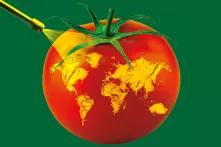
Bayer and other companies are fighting for the re-approval of glyphosate in the EU. To do so, they must prove that their pesticide active substance is not carcinogenic. But the studies presented are old – and point to the opposite.

In December 2019, the German pharmaceutical and biotechnological company Bayer submitted an application for re-approval of glyphosate for the European Union (EU) in conjunction with other companies under the name Glyphosate Renewal Group (GRG). Glyphosate is a chemical compound that works as a weed killer. It’s the most commonly used herbicide chemical in the world. The approval process is accompanied by a yet unresolved controversy between EU authorities and the World Health Organization’s International Agency for Research on Cancer (IARC), which centers on glyphosate’s toxicity. In 2015, the IARC had classified the chemical as “probably carcinogenic to humans”. The German Federal Institute for Risk Assessment (BfR) and the European Food Safety Authority (EFSA) – both in charge in the EU approval process at the time – came to a different conclusion. As a result of this heated debate, the EU renewed the license for the weed killer for five years, ten years less than the usual authorisation for crop protection chemicals. Glyphosate is currently approved for use as an active ingredient in pesticide products in the EU until the end of 2022.
Bayer’s application calling for re-approval is substantiated with hundreds of manufacturer studies and studies from scientific literature but does not contain any new studies refuting the classification of glyphosate as “probably carcinogenic” by IARC. Instead, the Glyphosate Renewal Group relies on twelve cancer studies with mice and rats commissioned by manufacturers, which the agrochemical company Monsanto – acquired by Bayer in 2018 – had already submitted in the previous approval process.
The IARC evaluated the weight of the evidence and examined four of these twelve cancer studies used by the authorities at the time as evidence of the safety of glyphosate. Basing their judgement exactly on these studies which manufacturers are trying to prove the harmlessness of glyphosate, the WHO cancer researchers concluded “sufficient evidence of carcinogenicity in animal studies”. As it later turned out, the BfR had ignored statistically significant increases in tumours in all cancer studies commissioned by manufacturers – according to current rules, two independent studies with positive cancer findings are sufficient to classify a substance as carcinogenic. The BfR justified this failure in an addendum to its assessment report and state that it relied on the statistical evaluations of the manufacturers’ study reports. This means that the German authorities did not evaluate the studies’ results itself, although its legal mandate is predicated on scientific independence.
Even after being alerted to this fact, the authorities maintained their original conclusion. However, their explanation for considering glyphosate not carcinogenic has changed. The pesticide active ingredient was not responsible for numerous significant tumour findings, they claim, but deficiencies in the conduct of the studies: high dosages, sick laboratory animals, or mere coincidence. It remains questionable how authorities could make an objective assessment of cancer risk based on flawed studies. And secondly, why the manufacturers did not submit new and less flawed cancer studies for the current renewal process.
But not just the manufacturers’ cancer studies have come under criticism. The authorities and IARC also reached different conclusions on the genotoxicity of glyphosate. Based on 53 studies commissioned by manufacturers, the EU authorities in 2015 denied that the herbicide can cause DNA or chromosomal damage. However, similar independent studies from scientific literature – which in their majority support a conclusion of “strong evidence of genotoxicity” according to IARC – had been classified by the EU authorities as “not reliable” and were excluded from the assessment. In September 2017, a plagiarism report revealed that the BfR’s declaration in which the regulator had justified the exclusion of these studies was a copy of Monsanto’s application for approval. Experts also criticize that national authorities like the BfR just focused on certain aspects like dietary exposures and risks to the general population – leaving risks of occupational exposure out of the picture.
A 2019 ruling by the European Court of Justice requires EU regulators to disclose all manufacturer commissioned studies which had previously been confidential upon request. Two renowned researchers from the Institute of Cancer Research at the Medical University of Vienna in Austria examined the 53 manufacturer commissioned studies mentioned above and evaluated their scientific quality: 34 studies showed substantial deviations from applicable OECD test guidelines and were classified by the two researchers as “not reliable”. As for the rest of the 53 studies, 17 were classified as „partly reliable” and only 2 studies as „reliable“. However, the applicants resubmitted these studies in the current approval process again as evidence of the lack of genotoxicity of glyphosate.
Notwithstanding all this, in its first draft report of June 2021 the Assessment Group on Glyphosate was proposing to classify glyphosate in the EU as non-carcinogenic and non-toxic again. The group – consisting of EU Member States France, Hungary, the Netherlands and Sweden – is appointed by the European Commission and mandated to ensure that the application meets the formal requirements of the EU legal provision. The EU licence for glyphosate was due to expire in December 2022, but a decision on its future has been pushed back to mid-2023 following an “unprecedented” number of responses to public consultations.

